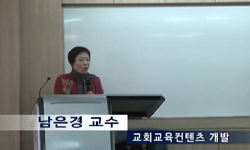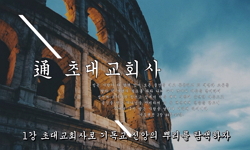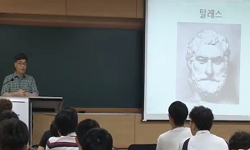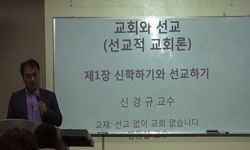오늘날 유아교육의 현장에서는 보다 질 높은 유아교육 프로그램의 필요성이 절실히 제기되고 있다. 이는 유아교육의 목표가 단순한 지식의 습득에 국한되어 있는 것이 아니라 유아 각자의 ...
http://chineseinput.net/에서 pinyin(병음)방식으로 중국어를 변환할 수 있습니다.
변환된 중국어를 복사하여 사용하시면 됩니다.
- 中文 을 입력하시려면 zhongwen을 입력하시고 space를누르시면됩니다.
- 北京 을 입력하시려면 beijing을 입력하시고 space를 누르시면 됩니다.
한국 가톨릭 유아교육의 현황과 발전 방안 연구 : Maria Montessori 교육이론을 중심으로 = A Study on the Current Status and Development of Catholic Early Childhood Education in Korea - Based on Maria Montessori’s theory of education -
한글로보기https://www.riss.kr/link?id=T15800109
- 저자
-
발행사항
나주 : 광주가톨릭대학교 대학원, 2020
-
학위논문사항
학위논문(석사) -- 광주가톨릭대학교 대학원 , 신학과 실천신학 , 2020.7
-
발행연도
2020
-
작성언어
한국어
- 주제어
-
발행국(도시)
전라남도
-
형태사항
vi,89 ; 26 cm
-
일반주기명
지도교수: 김관수
-
UCI식별코드
I804:24001-200000379538
- 소장기관
-
0
상세조회 -
0
다운로드
부가정보
국문 초록 (Abstract)
때문에 본고는 과거의 문답식 교육에 크게 의존해 있었던 교수법에 큰 변화를 가져왔던 Maria Montessori의 유아교육을 오늘날 가톨릭교회 안에서 다시금 효과적으로 적용하고자 Montessori 유아교육론의 그리스도교적 이해를 시도한다.
이를 위한 초석으로 교구와 본당, 유아교육기관을 기준으로 교회 내 유아교육의 상황을 비교 및 분석하였고 분석결과를 통해 한국 가톨릭 유아교육이 나아가야 할 방향을 가늠할 수 있었다.
결과적으로 Montessori의 유아교육론을 통한 발전방안과 더불어 그 바탕이 되는 세 가지 자세를 도출하였다. 발전방안으로는 첫째, 가정과 연계한 Montessori 일상생활 프로그램을 활용하는 것이다. 둘째, 인간관계 형성의 유익뿐만이 아니라 사회 공동체 생활 속에서 유아의 성장발달에 도움을 줄 수 있도록 주일학교 내에서 혼합연령학급을 구성하는 것이다. 셋째, 유아에게 더 보편적이면서도 전문화된 전례교육을 실시하기 위해 Montessori의 ‘Atrium’을 활용하는 것이다. 동시에 Atrium 안에서 전례력을 사용해서 교육을 실시함으로써 더 효과적인 교육이 이루어질 수 있을 것이다. 넷째, 가족 신앙교육을 통해 부모의 준비와 부모의 장기적 동참을 이룰 수 있도록 해야한다. 부모를 모방하는 유아는 신앙교육이 이루어지는 동안 부모가 행동하는 신앙습관들을 배우기 때문이다.
교회 공동체 모두는 급변하는 현대 사회 속에서 우리 유아들에게 맞는 교구를 개발함과 동시에 유아를 위한, 보다 역동적이고 효율적인 프로그램의 개발을 위해 연구해 나가야할 것이다. 동시에 이러한 프로그램은 교회뿐만이 아니라 가정 또한 협력하여야 한다. 가정에서의 신앙교육이 지니는 중요성은 그 어느 것과도 대처 불가능한 영역이다.
오늘날 누구나 공감하면서도 현장 안에서 여전히 외면을 받고 있는 유아교육의 발전을 위해 교회의 진지한 반성과 새로운 자세가 요청되는 바이다.
오늘날 유아교육의 현장에서는 보다 질 높은 유아교육 프로그램의 필요성이 절실히 제기되고 있다. 이는 유아교육의 목표가 단순한 지식의 습득에 국한되어 있는 것이 아니라 유아 각자의 특성을 파악함과 동시에 그들이 개성에 맞는 적절한 교육을 시키는 것이며 궁극적으로는 행복한 삶을 추구하도록 도움을 주는 것이기 때문이다.
때문에 본고는 과거의 문답식 교육에 크게 의존해 있었던 교수법에 큰 변화를 가져왔던 Maria Montessori의 유아교육을 오늘날 가톨릭교회 안에서 다시금 효과적으로 적용하고자 Montessori 유아교육론의 그리스도교적 이해를 시도한다.
이를 위한 초석으로 교구와 본당, 유아교육기관을 기준으로 교회 내 유아교육의 상황을 비교 및 분석하였고 분석결과를 통해 한국 가톨릭 유아교육이 나아가야 할 방향을 가늠할 수 있었다.
결과적으로 Montessori의 유아교육론을 통한 발전방안과 더불어 그 바탕이 되는 세 가지 자세를 도출하였다. 발전방안으로는 첫째, 가정과 연계한 Montessori 일상생활 프로그램을 활용하는 것이다. 둘째, 인간관계 형성의 유익뿐만이 아니라 사회 공동체 생활 속에서 유아의 성장발달에 도움을 줄 수 있도록 주일학교 내에서 혼합연령학급을 구성하는 것이다. 셋째, 유아에게 더 보편적이면서도 전문화된 전례교육을 실시하기 위해 Montessori의 ‘Atrium’을 활용하는 것이다. 동시에 Atrium 안에서 전례력을 사용해서 교육을 실시함으로써 더 효과적인 교육이 이루어질 수 있을 것이다. 넷째, 가족 신앙교육을 통해 부모의 준비와 부모의 장기적 동참을 이룰 수 있도록 해야한다. 부모를 모방하는 유아는 신앙교육이 이루어지는 동안 부모가 행동하는 신앙습관들을 배우기 때문이다.
교회 공동체 모두는 급변하는 현대 사회 속에서 우리 유아들에게 맞는 교구를 개발함과 동시에 유아를 위한, 보다 역동적이고 효율적인 프로그램의 개발을 위해 연구해 나가야할 것이다. 동시에 이러한 프로그램은 교회뿐만이 아니라 가정 또한 협력하여야 한다. 가정에서의 신앙교육이 지니는 중요성은 그 어느 것과도 대처 불가능한 영역이다.
오늘날 누구나 공감하면서도 현장 안에서 여전히 외면을 받고 있는 유아교육의 발전을 위해 교회의 진지한 반성과 새로운 자세가 요청되는 바이다.
다국어 초록 (Multilingual Abstract)
So, this article attempts to understand Montessori early childhood education from a Catholic perspective to effectively apply Maria Montessori education - that caused a major change in the mainstream of Socratic method education in the past - to the Catholic Church.
To this end, we compared and analyzed the situation of early childhood education programs in churches such as the main parish, parish, and education institution. And through the analysis results, we could also suggest the direction that Korean Catholic early childhood education programs should be directed.
Finally, we present a way to improve early childhood education programs through Montessori education. The first is to use Montessori's daily life program linked to the family. The second is to constitute a mixed age group within the church school to help the child's development in the social community as well as the formation of human relationships. The third is to use Montessori’s “Atrium” where liturgical education is used for more effective education to provide children with more general and specialized liturgical education. Fourth is to become exemplary parents through family faith education because children learn about faith through their parents.
In a rapidly changing modern society, the church community must develop and research more dynamic and efficient programs for children. Not only the church, but also the family should participate in this improvement. Faith education in the home is irreplaceable and very important.
For the advancement of early childhood education that is not much noticed today, we call for serious reflection and new attitudes from the church.
Today, a much higher level of early childhood education program is required in the early childhood education field because the goal of early childhood education is to help them live a happy life by providing them with educational opportunities based o...
Today, a much higher level of early childhood education program is required in the early childhood education field because the goal of early childhood education is to help them live a happy life by providing them with educational opportunities based on understanding each child's characteristics, not just a study of knowledge.
So, this article attempts to understand Montessori early childhood education from a Catholic perspective to effectively apply Maria Montessori education - that caused a major change in the mainstream of Socratic method education in the past - to the Catholic Church.
To this end, we compared and analyzed the situation of early childhood education programs in churches such as the main parish, parish, and education institution. And through the analysis results, we could also suggest the direction that Korean Catholic early childhood education programs should be directed.
Finally, we present a way to improve early childhood education programs through Montessori education. The first is to use Montessori's daily life program linked to the family. The second is to constitute a mixed age group within the church school to help the child's development in the social community as well as the formation of human relationships. The third is to use Montessori’s “Atrium” where liturgical education is used for more effective education to provide children with more general and specialized liturgical education. Fourth is to become exemplary parents through family faith education because children learn about faith through their parents.
In a rapidly changing modern society, the church community must develop and research more dynamic and efficient programs for children. Not only the church, but also the family should participate in this improvement. Faith education in the home is irreplaceable and very important.
For the advancement of early childhood education that is not much noticed today, we call for serious reflection and new attitudes from the church.
목차 (Table of Contents)
- Ⅰ. 서론 1
- 1. 연구동기 및 목적 1
- 2. 연구범위 및 방법 3
- Ⅱ. 유아교육의 이해 4
- Ⅰ. 서론 1
- 1. 연구동기 및 목적 1
- 2. 연구범위 및 방법 3
- Ⅱ. 유아교육의 이해 4
- 1. 유아의 정의와 발달적 특징 4
- 1.1. 유아에 관한 다양한 정의들 4
- 1.2. 유아의 발달적 특성 5
- 1.2.1. 신체적 발달의 특성 5
- 1.2.2. 정서적 발달의 특성 6
- 1.2.3. 인지적 발달의 특성 8
- 1.2.4. 사회적 발달의 특성 10
- 2. 유아교육의 정의와 특성 11
- 2.1. 교육론에서 정의하는 유아교육의 특성 11
- 2.1.1. 토마스 그룸의 교육론 11
- 2.1.2. 로널드 골드만의 교육론 13
- 2.1.3. 파울러의 교육론 16
- 2.1.4. 마리아 몬테소리의 교육론 18
- 2.2. 교회문헌에서 말하는 유아교육관련 지침들 19
- 2.2.1. 『현대의 교리교육』 19
- 2.2.2. 『교리교육 총지침』 20
- 2.2.3. 『사랑의 기쁨』 21
- Ⅲ. 한국 가톨릭 유아교육의 현황 23
- 1. 본당에서의 유아교육 23
- 1.1. 주일학교 유아교육 23
- 1.2. 전례 안에서의 유아교육 26
- 2. 교구에서의 유아교육 27
- 2.1 교육계획과 과정 27
- 2.1.1. 서울대교구 27
- 2.1.2. 수원교구 29
- 2.1.3. 대전교구 30
- 2.2. 유아교리서 30
- 3. 유아교육기관에서의 유아교육 36
- 3.1. 유아교육기관의 역사와 현황 36
- 3.2. 교육과정의 특징 38
- 3.3. 『2019 개정 누리과정』 40
- Ⅳ. Maria Montessori 유아교육론을 통한 발전방안 42
- 1. 왜 Maria Montessori 유아교육론이 중요한가? 42
- 1.1. Maria Montessori의 신앙관 44
- 1.1.1. 종교 44
- 1.1.2. 하느님 45
- 2.1. Maria Montessori 유아교육론의 목적과 특징 47
- 2.1.1. 유아의 자유로운 본성에 따르는 교육 48
- 2.1.2. 몬테소리 교구(das Montessori-Material) 50
- 2.1.3. 준비된 환경(vorbereitete Umgebung) 54
- 2.1.4. 집중화 54
- 2.1.5. 민감기(sensitive period) 55
- 2.1.6. 흡수정신(absorbent mind) 58
- 2.1.7. 자동교육(auto education) 59
- 2.1.8. 함께 있음으로 관찰하기 60
- 2. 가정에서의 유아교육의 활성화를 위한 제언 62
- 3. 본당에서의 유아교육의 발전방안 64
- 3.1. 주일학교 유아교리교육의 개선방안 65
- 3.2. 유아들을 전례에 적극적으로 참여시키기 위한 방안 68
- 3.2.1. Atrium을 통한 유아의 전례참여 68
- 3.2.1.1. Atrium이 지니고 있는 정신적·물리적 환경의 특징 69
- 3.2.1.2. Atrium의 교리교육을 위한 준비된 환경으로써의 특징 70
- 3.2.1.3. Atrium에 들어가는 교재들 71
- 3.2.1.4. Atrium 안에서의 침묵을 통한 유아의 전례참여 71
- 3.2.2. Maria Montessori의 전례력을 통한 유아의 전례참여 72
- 3.3. 부모와 함께하는 체험위주 주일학교 교육과정의 개선방안 76
- 3.3.1. 체험으로서의 교리교육 76
- 3.3.2. Artium과 가족 신앙교육 77
- 3.3.3. 가족 신앙교육의 필수요소인 부모교육과 부모의 역할 77
- Ⅴ. 결론 80
- 참고문헌 82
- 《Abstract》 88












